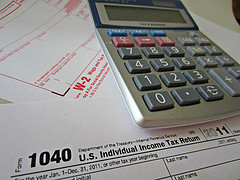Priority taxes are taxes first due within three years of the bankruptcy filing and taxes assessed within 240 days of the bankruptcy, or which are unassessed but assessable when the case is filed. These taxes are priority claims which are not subject to discharge. Priority taxes will survive a Chapter 7 discharge to the extent that the trustee does not have money in the estate to pay them.
In Chapter 13, such taxes must be paid in full through the plan; penalties associated with those taxes, however, can be treated as a non-priority claim and paid a fraction along with other unsecured claims. In a Chapter 13, if the plan is completed, the tax does not continue to incur interest during the case and no post filing interest is due.
Taxes for which no income tax return has been filed are not dischargeable in bankruptcy
If a return was filed late, for a year outside of the priority tax period, the return must have been on file for two years for the tax to be discharged in bankruptcy.
Some tax debts are not dischargeable
Tax debts that arise from unfiled tax returns are not dischargeable. The IRS routinely assesses tax on unfiled returns. These tax liabilities cannot be discharged unless the taxpayer files a tax return for the year in question.
Five Rules to Discharge Tax Debts
If the income tax debt meets all five of these rules, then the tax debt is dischargeable in Chapter 7 and Chapter 13 bankruptcy petitions.
1. The due date for filing a tax return is at least three years ago. The tax debt must be related to a tax return that was due at least three years before the taxpayer files for bankruptcy. The due date includes any extensions. (It should be noted that all dates are subject to tolling events. This means that different circumstances may impact the time. For example, if you live outside the United States for six months or more you need to add this period to the time. It is best to speak with a knowledgeable local lawyer regarding your specific circumstances.)
2. The tax return was filed at least two years ago. The tax debt must be related to a tax return that was filed at least two years before the taxpayer files for bankruptcy. The time is measured from the date the taxpayer actually filed the return.
3. The tax assessment is at least 240 days old. The IRS must assess the tax at least 240 days before the taxpayer files for bankruptcy. The IRS assessment may arise from a self-reported balance due, an IRS final determination in an audit, or an IRS proposed assessment which has become final.
4. The tax return was not fraudulent. The tax return cannot be fraudulent or frivolous.
5. The taxpayer is not guilty of tax evasion. The taxpayer cannot be guilty of any intentional act of evading the tax laws.
Other Tax Issues in Bankruptcy
Before a Chapter 13 bankruptcy can be granted, the bankruptcy petitioner is required to prove that the four previous tax returns have been filed with the IRS. The four previous tax returns must be filed no later than the date of the first creditors’ meeting in a bankruptcy case.
Additionally, bankruptcy petitioners are required to provide a copy of their most recent tax return to the bankruptcy court. Creditors can also request a copy of the tax return, and petitioners must provide a copy to them.
If you are expecting a tax refund and want to keep it must be listed as an asset and exempted. Otherwise the Trustee will take the refund for the benefit of your creditors. List it or lose it.
Other T articles:
Image by 401kcalculator.org


